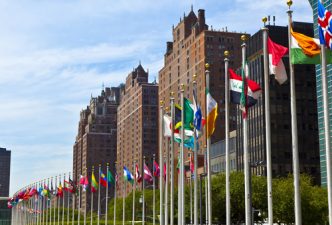
UNICEF in this news piece has announced that although a number of countries in the Middle East and North Africa (MENA) region have made considerable progress towards improving the health of mothers and children, disparities within these countries persist, making this progress inequitable.
“The health and well-being of mothers and children is often determined not by what country they live in, but by their income and where they live within a country,” said Shahida Azfar, UNICEF Regional Director for the Middle East and North Africa at the launch of a study on inequities in maternal and child health in the region. “If these countries are to meet the Millennium Development Goals by 2015, they need to ensure that access to health is equal to all.”
The study looks at access to maternal and child health among two groups – the poorest and richest 20 per cent of the population, and urban and rural dwellers – in 10 countries and territories: Algeria, Djibouti, Iraq, Egypt, Jordan, the occupied Palestinian territory, Sudan, Syria, Tunisia and Yemen.
Data for five indicators were analyzed: under-five mortality, measles vaccination among one-year olds, the proportion of births attended by a skilled health professional, antenatal care coverage, and contraceptive use.
The study finds that health inequalities in relation to the wealth index are more pronounced than those between urban and rural populations. Children born to the richest 20 per cent of the population are more likely to survive and be vaccinated than children from poorer households. Likewise, women are more likely to use contraception, see a doctor during their pregnancy, and receive professional medical assistance during delivery, if they are from the richest quintile of the population.
Sudan and Yemen have the highest inequalities, whether by income or place of residence. In Yemen, a child born among the poorest 20 per cent of the population is three times more likely to die before the age of five than a child from the richest 20 per cent. In Sudan, a child from a rich household is twice as likely to be vaccinated against measles than a child from a poor household.
The study puts forward a series of recommendations to reach the most deprived women and children with basic services:
Allocating more resources to health programs at the community and village level to strengthen the outreach of health services
Training and deploying more community health workers with skills to work with simplified modern techniques and help deliver cost-effective and affordable quality services, providing incentives by eliminating user fees and covering or reimbursing transportation costs for the poor and marginalized segments of the population.
The study is part of UNICEF’s global efforts to sharpen focus on equity so that all children, particularly those who suffer the highest level of deprivation in a society, can have access to education, health care, safe water, adequate sanitation and other services necessary for the their survival and growth.
Read more on women’s health issues:
How do Tree Humpers Prevent Pregnancy?
Muslims Debating Harassment, Standing Up for Women’s Rights, Harassmap.com
Olympia Snowe Leads US Women Senators in Renewed Call for Women’s Rights in the Middle East
:: Photo Via KoshyK
You can follow Tinamarie on @ModernLoveMuse and facebook. She blogs at www.tinamariebernard.com.



